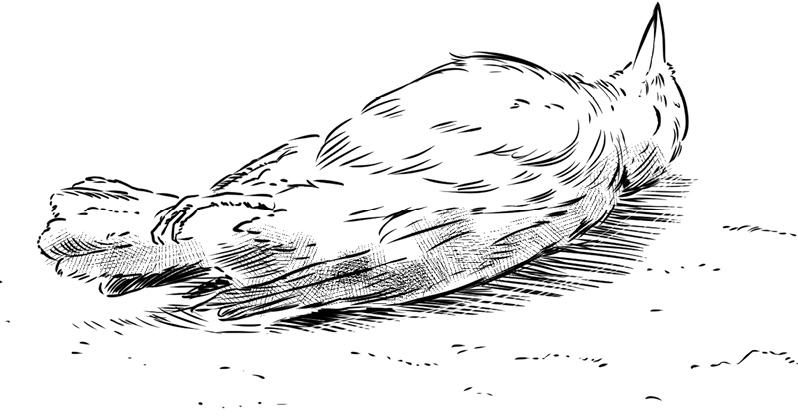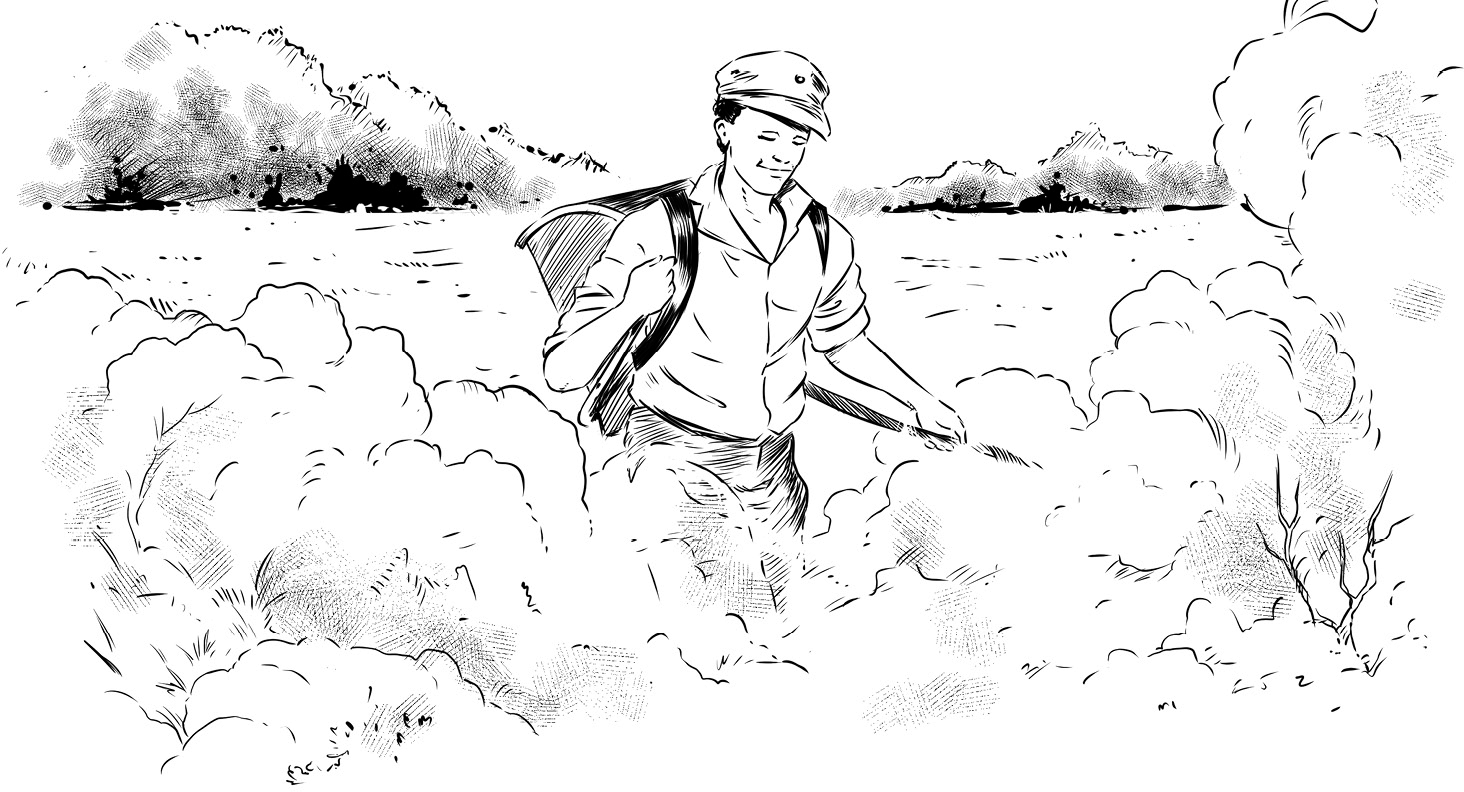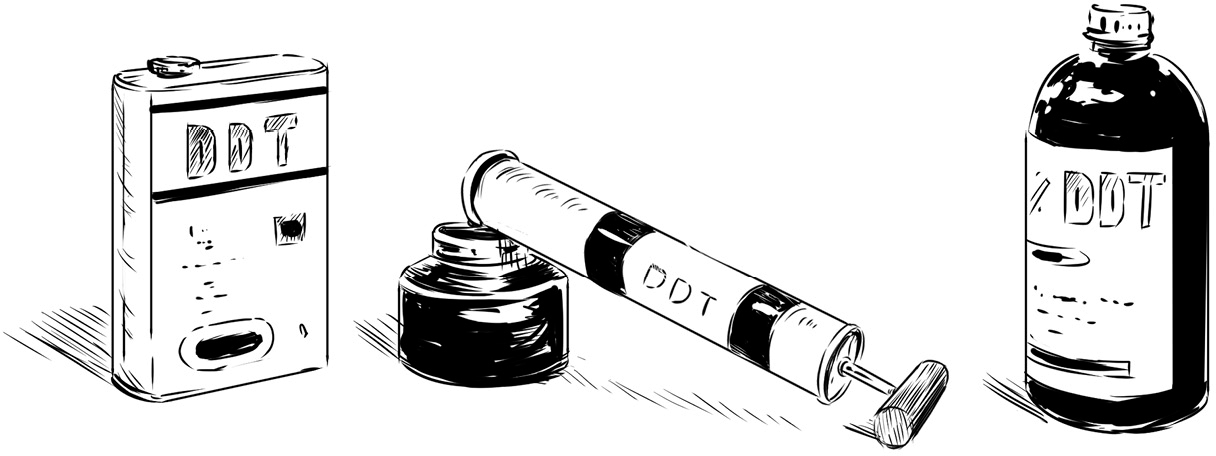Chapter 7
Battling On
While doing her research for The Edge of the Sea, Rachel had read lots of articles and books.
Much of what she read had to do with the effect of pollution on our world. Rachel became concerned about how cities and factories across the country were dumping garbage and industrial waste into rivers and oceans.


Rachel was sad about how the ocean she loved so much was being used as a giant trash can. She also read about strong chemicals called “pesticides” that were being sprayed on crops. Farmers and big corporations claimed they needed the pesticides to kill insects and animals that damaged plants and crops. Even the US government made announcements that they had to wage war on the pests that were a threat to food crops. But Rachel knew that this would be terrible for plants and animals—and humans who ate them.
In 1957, Rachel’s niece, Marjorie, the daughter of her sister, Marian, had died from pneumonia, and Rachel was now looking after her niece’s young son, Roger, in addition to her own eighty-nine-year-old mother. Rachel loved her family, but taking care of them took a lot of energy.

And Rachel herself was not always in good health. She was often tired and weak from surgery she had had many years earlier. But none of that stopped her from reading and writing and researching. More than anything she wanted the world to hear about the things she discovered.

Despite all the demands on her time, Rachel was looking for a new project. She was thinking about how she could tell the world all the things she was learning about pollution and pesticides. And then she received a letter from a friend, Olga Owens Huckins. The letter described how Olga had found numerous dead robins in her yard. She said that the birds had died because of pesticide spraying that had been done to control mosquitoes. And yet there were still more mosquitoes than ever! The pesticide that had been sprayed was called DDT. Olga asked Rachel if she could do something about it. Rachel knew that she definitely could.
In 1953 she had bought a piece of land on the coast of Maine and built a small cottage. Her books had made her famous, and Rachel longed for a place to escape to. Rachel brought Roger to live there with her and her mother. During the day, Rachel and Roger wandered along the seashore and explored nature. They studied moss and ferns.


And at night they took a flashlight and watched the sea life in the rock pools—small crabs, starfish, and anemones. It was just the kind of peace and quiet Rachel needed. It reminded her of her childhood and exploring her family’s farm in Pennsylvania. Rachel wanted to teach Roger about the wonders and beauty of nature, just like her mother had taught her.
Rachel decided to spend more time learning about pesticides and their effect on nature. She knew that it was not going to be an easy research project. A lot of people told her it was a bad idea, but Rachel knew someone had to speak up.
The more research Rachel did, the more upset she became. She was discovering how pollution and pesticides threatened birds, insects, fish, and other animals. And what about human beings? If pollution and pesticides made animals sick, surely they would make people sick, as well.

Rachel spoke to lots of people—experts on insects and animals, friends she used to work with in the government, doctors who treated people with diseases, and even hunting and fishing groups.

It was dangerous work, and some of Rachel’s friends worried about her. They thought that if Rachel criticized big business, government agencies, and farmers that used pesticides, these groups might try to ruin her reputation. But Rachel didn’t have any connection to business, and she no longer worked for the government. She hoped that this would allow her to do her research more freely. She wanted to show people that keeping the air and water clean was important, even necessary.
Rachel kept this new work a secret. She wanted to make sure that no one would try to stop her. As always, because Rachel wanted to make sure her research was absolutely perfect, she checked and double-checked facts. She asked scientists to read her work to be absolutely certain that it was accurate. She also asked everyone to help her keep her project a secret.

The problem with pesticides and pollution was worse than Rachel had thought. Most people thought the government would protect them from dangers and wouldn’t do anything to make them sick. But Rachel’s research showed her that this wasn’t true.